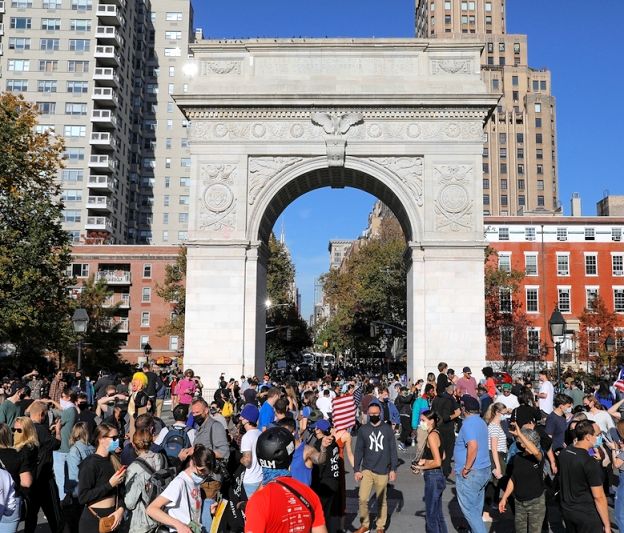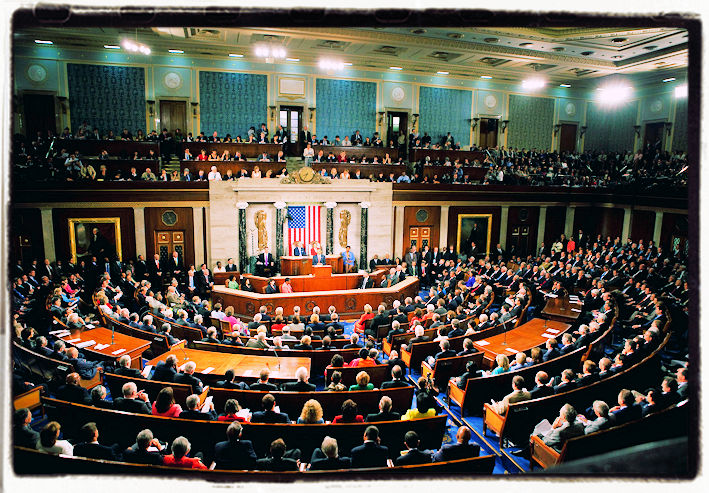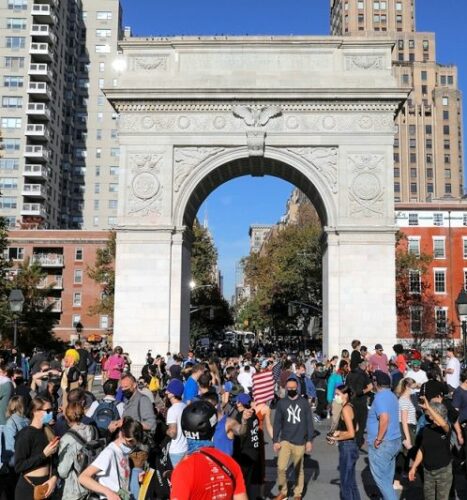
American Presidents Part 2 Contemporary age. The men who made America great.
President’s Day, sometimes called Washington’s Birthday, is an official holiday observed in the United States of America on the birth of George Washington, the country’s first president. This year Presidents Day is celebrated on Monday, February 19, 2024.
We must dare to be great; and we must realize that greatness is the fruit of toil and sacrifice and high courage.
Teddy Roosevelt
Nothing in the world can take the place of persistence. Talent will not; nothing is more common than unsuccessful men with talent. Genius will not; unrewarded genius is almost a proverb … Persistence and determination alone are omnipotent.
Calvin Coolidge
Older men declare war. But it is youth that must fight and die. And it is youth who must inherit the tribulation, the sorrow and the triumphs that are the aftermath of war.
Herbert Hoover
Yours is not the task of making your way in the world, but the task of remaking the world which you will find before you.
Franklin D. Roosevelt
Life is never easy. There is work to be done and obligations to be met — obligations to truth, to justice, and to liberty.
John F. Kennedy
The American dream does not come to those who fall asleep.
Richard Nixon
The founding of our Nation was more than a political event; it was an act of faith, a promise to Americans and to the entire world. The Declaration of Independence declared that people can govern themselves, that they can live in freedom with equal rights, that they can respect the rights of others.
Gerald Ford
Let’s talk about the presidents of the contemporary USA since J.F. Kennedy became President in 1960. Every President has some pros and cons both for his nation and for all the world. Here then, is a modern portrait gallery of the White House.
John F. Kennedy (1961-1963)
Kennedy (1917-1963) was the first Catholic to mount the stairway to the White House. He is mostly remembered for having shown Americans the “new frontier” of social reforms for the poor and the coloureds.
He was assassinated in Dallas in 1963. The reasons for his assassination have never been clarified. Though he was President for only three years, from 1961 to 1963, his personality and ideas changed America. He was both the first Roman Catholic and the yountielt President in the history of the country. He set clear goals for America. For example, he promised that the United States would land a man on the moon before 1970. Kennedy supported the ideas of Martin Luther King, Jr. and fought for civil rights, fair housing and programs to stop poverty. He asked Congress for more money for education and medical care for elderly people. Kennedy was against Communism. For example, when the Soviet Union placed missiles in Cuba, he sent U.S. ships to surround the island. But he believed that the best way to fight Communism was not by sending armies but by attacking poverty and injustice. He organized the Alliance for Progress to help the countries of Latin America. He started the Peace Corps and sent Americans to over sixty countries in Africa, Asia, and South America. These young volunteers worked and lived with the people, built schools, and taught farmers more modern methods. Kennedy worked to stop the testing of nuclear weapons. But on November 22, 1963, he was assassinated.
Lyndon B. Johnson (1963-1969)
As J.F. Kennedy’s vice-president, Johnson became president after Kennedy’s assassination and after that he was re-elected. He tried to create a “great society” along the lines of his predecessor, but he did not have much success. Johnson’s name is associated with the Vietnam War which he upheld and extended. The end of this war was the final defeat suffered by the American colonies.
Richard Nixon (1969-1974)
Richard Nixon’s political activity was long and varied. In the 1950’s he was Eisenhower’s vice-president. In the 1960s he opposed Kennedy’s election and lost the campaign by a narrow margin. In the early 1970s he was elected president. He was vastly successful in international politics, ending the Vietnam War, and beginning talks with the USSR and China. However, he had to resign as a consequence of the Watergate Aff air (electoral espionage).
Gerald Ford (1974-1977)
He was the first president to release to the public a full report of his medical checkup. Ford was the first president to visit Japan. Ford was the only president whose two assassination attempts against him were made by women. Gerald Ford was the first president not elected by the people to become president. He became vice president when Nixon’s elected vice president, Spiro T. Agnew, resigned. Then became president when tiny U.S. flag Nixon resigned. At 93 years old, Gerald R. Ford and tiny U.S. flag Ronald W. Reagan lived longer than any other U.S. President. Ford lived longer than Reagan did. Ford was the first president to pardon a former president.
Jimmy Carter (1977-1981)
Carter became the President of the United States after he had been Governor of Georgia when he ran a peanut business. Carter’s presidency was characterized by his support of “civil rights” at home and attempts at peace abroad. He organized the Jamp David meeting where Israel and Egypt signed the peace reement. Carter is still useful to his country thanks to his Diplomatic abilities. He is often assigned the task of peace ambassador to the troubled areas of the world.
Ronald Reagan (1981-1989)
In 1981 on March 30, Reagan was shot in an assassination attempt by John W. Hinkley, Jr. outside of the Washington, D.C. Hilton Hotel. Reagan’s life is a demonstration of how a film actor can become a president twice. Reagan’s economic and social policies were conservative, the so-called “reaganomics”. It improved the economy but it also created a lot of poverty and homelessness. In the 1980 election, Reagan won in 46 out of 50 states. The only states he did not win in were Georgia, Maryland, Minnesota, or West Virginia. He also did not win the District of Columbia. In the 1984 election, Reagan won in 49 out of 50 states. The only state he did not win in was Minnesota, and he lost by a very small margin there. He also did not win the District of Columbia.

George Bush (1989-1993)
George Bush’s political career was very long. He was the first ambassador to China, then the chief of the powerful CIA. He served as Reagan’s vice-president and finally he was president from 1989 to 1992. His most important event was the Gulf War in 1992 against Iraq. Bush was the sixth left-handed president of the United States.
In 1988, Bush ran a successful campaign to succeed Reagan as President, defeating Democratic opponent Michael Dukakis. Foreign policy drove the Bush presidency: military operations were conducted in Panama and the Persian Gulf; the Berlin Wall fell in 1989, and the Soviet Union dissolved two years later. Though the agreement was not ratified until after he left office, Bush also signed the North American Free Trade Agreement, which created a trade bloc consisting of the United States, Canada, and Mexico. Domestically, Bush reneged on a 1988 campaign promise and, after a struggle with Congress, signed an increase in taxes that Congress had passed. In the wake of a weak recovery from an economic recession, along with continuing budget deficits and the diminution of foreign politics as a major issue in a post-Cold War political climate, he lost the 1992 presidential election to Democrat Bill Clinton.
William Jefferson Clinton (1993-2001)
In 1998 President Clinton signed into law the Digital Millennium Copyright Act. The act provided harsher penalties for copyright infringement on the internet and made it illegal to create or distribute technologies for bypassing controlled access to copyrighted material. In 1999 he authorized American troops, but not ground troops, to take part in the North Atlantic Treaty Organization’s (NATO) air strikes against the Serbian government. Although a United Nations (UN) courts ruled that a “genocide” was not taking place in Yugoslavia at this time, the UN court did conclude that Serbian President Slobodan Miloševic’s government had used a “systematic campaign of terror, including murders, rapes, arsons and severe maltreatments” in suppressing the ethnic Albanians’ revolt in Kosovo. NATO forces suffered virtually no loss of life during this military campaign. In 1998, On December 19, the House of Representatives approved two articles of impeachment against President Clinton, one for perjury and the other for obstruction of justice. On February 12, 1999, the Senate acquitted President Clinton of both articles of impeachment made against him by the House of Representatives. The first version of the official U.S. government White House website went online on Oct. 21, 1994. On November 16, 2000, President Clinton was the first president to visit Vietnam since the end of the Vietnam War. Clinton was the seventh left-handed president of the United States.
George Walker Bush (2001-2009)
Bush was one of two managing general partners of the Texas Rangers baseball club from 1989-1994. Of the 6 million votes cast in Florida in the 2000 election, Bush won the state’s 25 electoral votes by 537 votes. On September 11, 2001, terrorists flew hijacked airplanes into both towers of the World Trade Center and into the Pentagon. A fourth hijacked plane crashed in Pennsylvania. October 7: The War in Afghanistan begins with the U.S. military operation “Operation Enduring Freedom”, which was launched by the United States with the United Kingdom in response to the September 11 attacks. On March 20, 2003, the Iraq War (or the Second Persian Gulf War) begins with the invasion of Iraq by a multinational coalition of forces, led by the United States and the United Kingdom. Although Bush declared an end to major combat operations in May 2003, the conflict and casualities continued after he completed his second term in office. On August 28, 2005: Hurricane Katrina hit the southern coast of the United States, causing thousands of deaths and billions of dollars in damage. In the years 2007-2009 the economy enters a state of crisis as the US housing market bubble bursts, foreclosures rise, and prominent financial institutions must seek federal assistance.
Barack Hussein Obama (2009-2017)
Barack Obama served as the 44th President of the United States. His story is the American story – values from the heartland, a middle-class upbringing in a strong family, hard work and education as the means of getting ahead, and the conviction that a life so blessed should be lived in service to others. In 2009 in an effort to rejuvenate the struggling U.S. economy, Congress passes the American Recovery and Reinvestment Act, which allocates money for job preservation and creation, infrastructure investment, energy efficiency and science, assistance to the unemployed, and State and local fiscal stabilization. The Affordable Care Act was signed into law on March 23, 2010. Obama was the first African-American U.S. president. He was also the first president born outside of the contiguous United States. Obama was the eighth left-handed president of the United States. He won the Nobel Peace Prize in 2009. After winning re-election by defeating Republican opponent Mitt Romney, Obama was sworn in for a second term in 2013. During his second term, Obama promoted inclusiveness for LGBT Americans, with his administration filing briefs that urged the Supreme Court to strike down same-sex marriage bans as unconstitutional (United States v. Windsor and Obergefell v. Hodges). Obama advocated for gun control in response to the Sandy Hook Elementary School shooting, and issued wide-ranging executive actions concerning climate change and immigration. In foreign policy, Obama ordered military intervention in Iraq in response to gains made by ISIL after the 2011 withdrawal from Iraq, continued the process of ending U.S. combat operations in Afghanistan, promoted discussions that led to the 2015 Paris Agreement on global climate change, initiated sanctions against Russia following the invasion in Ukraine and again after Russian interference in the 2016 United States elections, brokered a nuclear deal with Iran, and normalized U.S. relations with Cuba. Obama left office in January 2017 with a 60% approval rating. He currently resides in Washington, D.C. His presidential library will be built in Chicago.
Donald Trump (2017-2020)
Donald J. Trump is the 45th President of the United States. He believes the United States has incredible potential and will go on to exceed anything that it has achieved in the past. His campaign slogan was Make America Great Again, and that is exactly what he intends to do. He was born on June 14, 1946. Before entering politics, he was a businessman and television personality. Trump was born in the New York City borough of Queens. He earned an economics degree from the Wharton School of the University of Pennsylvania. A third-generation businessman, Trump followed in the footsteps of his grandmother Elizabeth and father Fred in running the family real estate company. He served as chairman and president of The Trump Organization from 1971 until January 2017. Upon his inauguration as president, Trump delegated company management to his sons Donald Jr. and Eric. Trump’s business career primarily focused on building or renovating office towers, hotels, casinos, and golf courses. As president, Trump’s major domestic policy initiatives have included a failed attempt to repeal and replace the Affordable Care Act, the appointment of Neil Gorsuch to the Supreme Court, and a travel ban on citizens from six Muslim-majority countries, citing security concerns. In foreign policy, he withdrew the United States from the Trans-Pacific Partnership and the Paris Climate Agreement, undid parts of the Cuban Thaw, and ordered missile strikes in Syria in response to the Khan Shaykhun chemical attack. After Trump dismissed FBI Director James Comey, the Justice Department appointed his predecessor Robert Mueller as special counsel to investigate Russia’s interference in the presidential election, potential links between Russia and Trump campaign associates, and any related matters. In 1995, he converted Mar-a-Lago estate, which he had acquired in 1985 for 5 million dollars, into a private club. The estate is now on 20 acres, it has an enormous ballroom, 58 bedrooms, 33 bathrooms, five tennis courts, a pool, and a golf course. Today the club has almost 500 memebrs, including many celebrities and politicians, who use the estate as a private resort. Now memebers must pay 200,000 dollars to be in the club, an increase of $100,000 since Trump became president in January, and other $14,000 a year. The club generates tens of millions of dollars for Trump every year, and will probably generate more, now that he’s president.

Joseph Robinette Biden (2020-present)
Joseph Robinette Biden Jr. (born November 20, 1942) is an American politician who is the 46th and current president of the United States. A member of the Democratic Party, he served as the 47th vice president from 2009 to 2017 under Barack Obama and represented Delaware in the United States Senate from 1973 to 2009.
Joe Biden briefly worked as an attorney before turning to politics. He became the fifth-youngest U.S. senator in history as well as Delaware’s longest-serving senator. His 2008 presidential campaign never gained momentum, but Democratic nominee Barack Obama selected him as his running mate, and Biden went on to serve two terms as the 47th vice president of the United States. In 2017, at the close of his administration, Obama presented Biden with the Presidential Medal of Freedom. Two years later Biden launched his campaign for U.S. president and was elected as the 46th president of the United States on Jan. 2020. His running mate, Kamala Harris, made history as the first woman and first Black and South Asian American elected vice president. Biden will become the 46th president on Jan. 20.
Presidents’ Day in the United States
Washington’s Birthday, also known as Presidents’ Day, is a federal holiday held on the third Monday of February. The day honors presidents of the United States, including George Washington, the USA’s first president. Washington’s Birthday officially honors the life and work of George Washington, the first president of the United States. The day commemorates past presidents of the USA. Washington’s Birthday is sometimes known as Presidents’ Day. This is because while most states have adopted Washington’s Birthday, some states officially celebrate Presidents’ Day.
Some states pay particular attention to Abraham Lincoln, as his birthday was also in mid-February. In the weeks or days leading up to the holiday, schools often organize events and lessons for students about the presidents of the United States and George Washington in particular. It is a popular day for stores to start their sales. The US federal holiday is on the third Monday of February each year, but records show that George Washington’s birthday is on February 22.
Many businesses are open as usual and many stores hold sales on Washington’s Birthday. Many delivery services, except for the Post Office, have a regular service and many, but not all, public transit systems operate on regular schedules. Some schools close for the whole week for a mid-winter recess. According to some government sources, Indiana observes the Washington’s birthday holiday in December.

